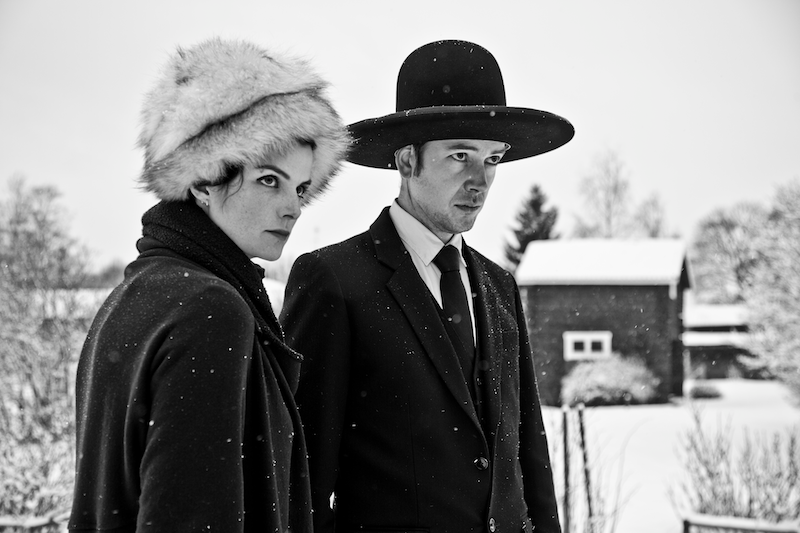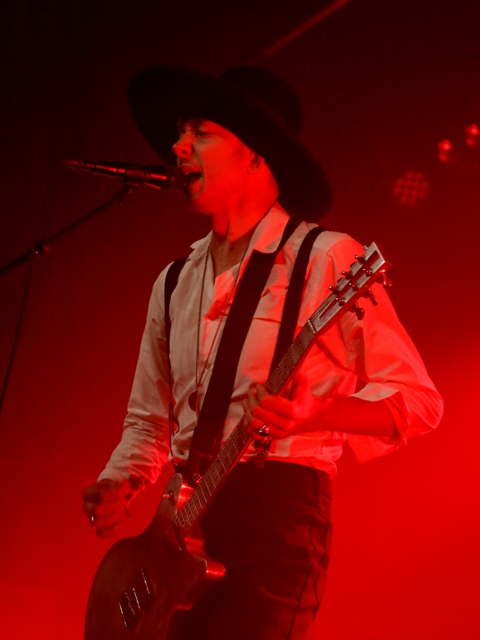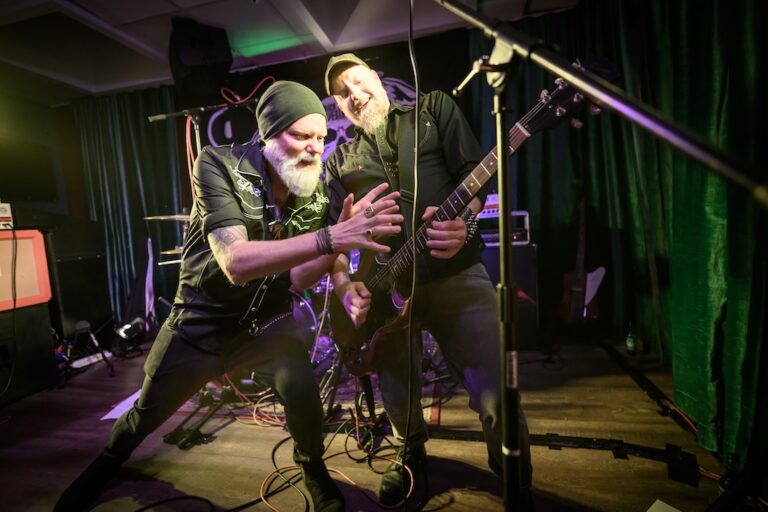
On February 29th, Arabrot take to the stage, first at The Dome, and then later at the Boston Music Rooms as part of the astounding line up for the Chaos Theory Festival.
A special, tenth anniversary celebration of the festival, the line-up includes performances from Teeth Of The Sea, Zu, Undersmile, Furia and more.
To mark the occasion, and the fact that Arabrot are playing two separate sets at the festival, we reached out to Kjetil Nernes, who took time to answer questions about the band and, more specifically, about the recent release of Die Nibelungen.

Die Nibelungen
I would imagine that the temptation, when scoring a film, is to overplay; whereas it is essential to underplay in order to enhance, rather than swamp the atmosphere. How much of a challenge was it for you to develop a soundtrack that responded to the needs of Die Nibelungen (not to mention the other films you have scored over the years) rather than simply run alongside it?
Exactly. At lot of it comes down to gut feeling. A notion of the ebb and flow of the atmospherics in the films. Silent films are very different from modern films in the way they exaggerate emotions or moods. These extremes fit Årabrot and the way we work very well as there are a lot of changes between silence and monumental sound. This is something that comes to us very naturally. I think that is a good reason for us doing these scores, and also having a lot of success doing it.
Once the work was completed did you, at that point, have a clear idea how it would be edited for standalone release, or did that come later and how far does the album reflect the actual film score? Has it evolved into something different in its recorded incarnation?
Yes, it is a different monster indeed. The actual recording of the performance makes no sense without the film so it needs to be edited and for Die Nibelungen obviously also cut shorter (it would be something crazy like a 7xLP box release if we didn’t edit). Fortunately we have sound artist Andrew Liles part of the extended Årabrot family. He’s a genius when it comes down to editing and mixing this kind of music.
It’s a very different skill set, developing instrumental music that responds to action on a screen – have you found that engaging in these scoring projects has had a strong impact on the way the band has developed over the years?
Yes, and slowly it will become a much bigger part of the band. I think you can hear fragments of it already, but in the future I think it will make sense to unite the rock’n’roll side of the band and the film score side of it.
The band in general
When the band started out, bands like the Melvins and Swans were listed as influences, whereas now the influences seem to have become less confrontational and more atmospheric, with a strong post-punk atmosphere; it’s always exciting when a band evolves and grows alongside their audience, but have there been those who would rather have seen Arabrot continue much along the lines upon which it started?
I’m sure there are still a few who would only enjoy the earlier, more abrasive punk-version of Årabrot, but my feeling is most people actually prefer the newer material. There was an enormous change in interest after the release of The Gospel and it still seems to grow. We are very lucky to have a fan base of people genuinely interested in music and the same people usually have a good sense of understanding for our progress over the past decade.
When a band evolves from heavier roots to embrace a more atmospheric sound, it can be quite difficult to create a coherent set list that flows. However, it seems that the latter-day compositions lend themselves to a more visceral interpretation in the live environment – was that something that was in your mind when the pieces were written, or did they develop that way through rehearsal?
It is the true nature of the songs that exposes itself live. Believe it or not there is in reality not much of a difference between how it was recorded and how it is played live. The live setting obviously creates room for some experimentation, but we usually perform stripped-down versions of the songs as they initally were recorded.
It seems that the band’s musical evolution has run in tandem with the evolution of the lyrical content. I remember once that you jokingly referred to the early lyrics as essentially “bible and porn”, but the more recent material, and especially the new album, is overtly grounded in a wide array of literature and philosophy. How long does it take to write, develop (and potentially edit) the lyrics so that they cover the ground you wish them to cover? Is that something that you focus upon, or do you find you are inspired to write in a stream of consciousness style that needs little editing?
The lyrics are incredibly time-consuming and I work very hard on trying to write lyrics at a very high level. I am fortunate as songwriting comes very easily to me, but the texts are often the opposite and I usually struggle with the words for many months before they fall into place. I have found out that time is the best way to come up with textual ideas. I basically wait until I feel proper inspiration for writing and this process might take months. The thematic and textual side of the band is extremely important to me so taking this time is crucial.
Do you adapt your shows for festival appearances, bearing in mind that you’re potentially encountering elements of the audience for the first time, or do you present the band in the same way as you would to a more partisan audience?
We always present the music the same way for festivals, club shows or in any other way. Often the actual playing time is the only factor changing the sets. For instance festivals often has set time limitations.
The presentation of Arabrot’s albums is always beautifully done and rife with oblique imagery – how important is it to your that Arabrot’s material is approached in this holistic fashion and is your own presentation influenced by the way that you experienced music growing up?
Thanks. To me album covers and music always go hand in hand and I still remember seeing Nirvana’s ‘In Utero’ CD scattered on the floor at a party when we were drunk out of heads as 15 year olds back home in Haugesund, Norway- The imagery of the cover art more vivid than the music at the time. In my experience the art and the music of the bands I love are always closely connected.
With such a remarkable back catalogue, are there any plans afoot for a special release of live material? Tracks like Horns of the devil grow are particularly potent in the live environment and it would be great to have a record of it.
True that. Horns Of The Devil Grow has developed into something so much better in the live setting. Story Of Lot too. Even Rebekka from The Gospel is very different now in its new ‘ballad’ live interpretation. I have considered a live album for sure, but for now the only way to experience these songs in their fullest form is to come out and see us live.
With Who Do You Love having received a great deal of attention and respect, seemingly from across the board, what plans do you have next? Is there anything in the offing, or is the band focusing on live appearances for the time being?
New album has been tracked and is now being mixed. More news about this coming very soon!
You can see Arabrot live (twice) at the forthcoming Chaos Theory Festival, held on February 29th at Boston Music Room and The Dome.

Festival notes:
Chaos Theory are getting ready for their 10th anniversary. An extravaganza of new, progressive, experimental music awaits at Boston Music Room and The Dome, with IDM clubnight Towards Collapse taking over from 11pm.
Super Earlybirds/Earlybirds sold out. 1st Release available at £28. Final Day Ticket price £35. Towards Collapse Takeover tickets £6.50 w/ day ticket. Towards Collapse Takeover ONLY – £11.50.
Tickets for the afterparty only can be purchased here: https://link.dice.fm/TL4wcqq2T1
Photo by Jose Ramon Caamaño.
Presented by Chaos Theory.
14+ with 14–16 needing to be accompanied by an adult. They will need photo ID to prove they are over 14 or venue will refuse entry.



